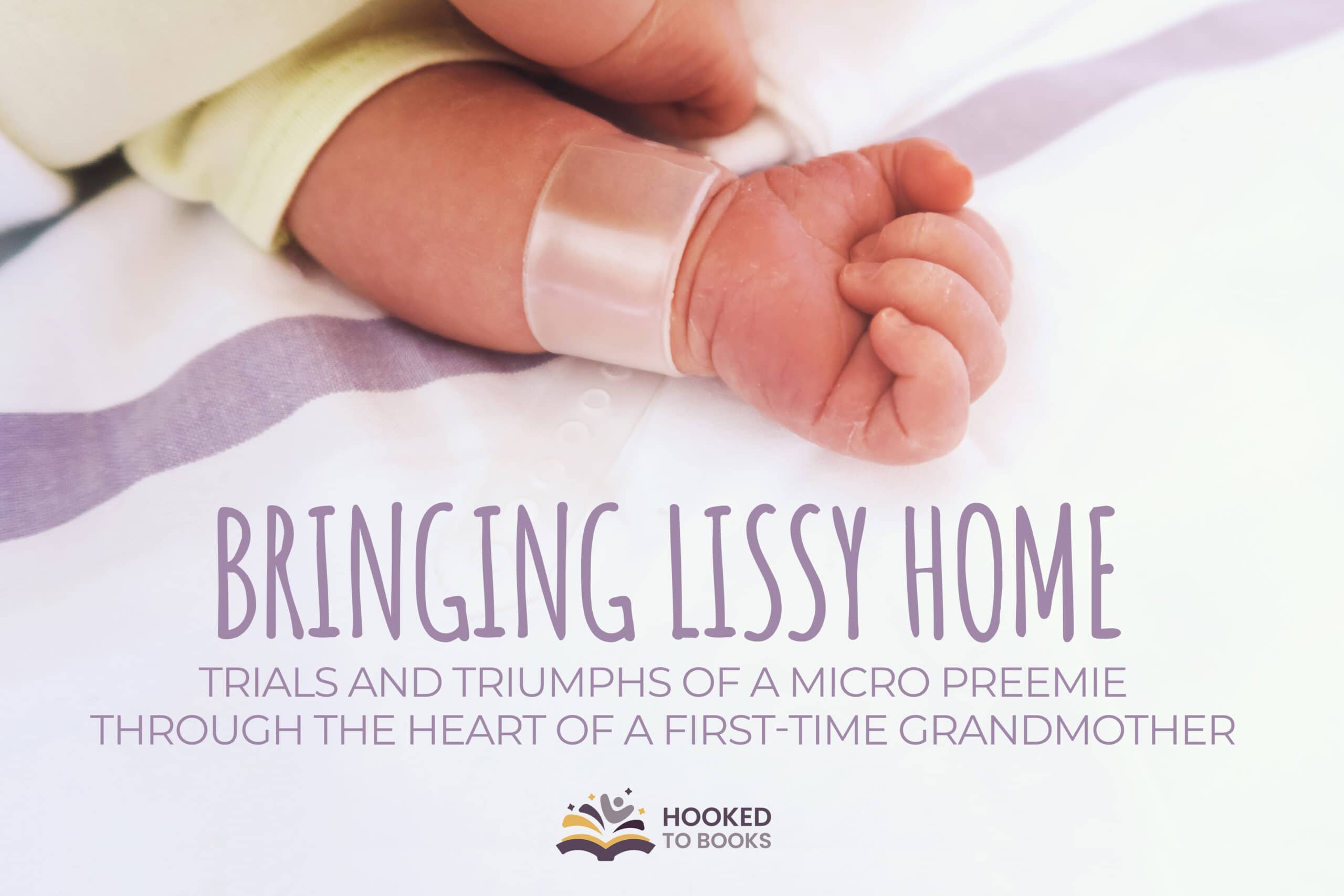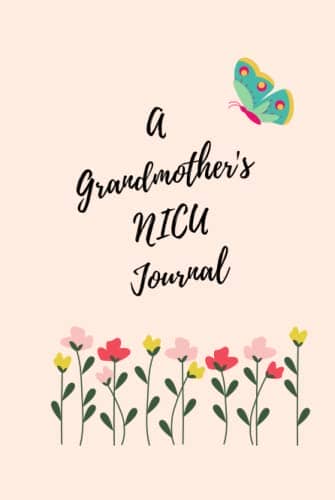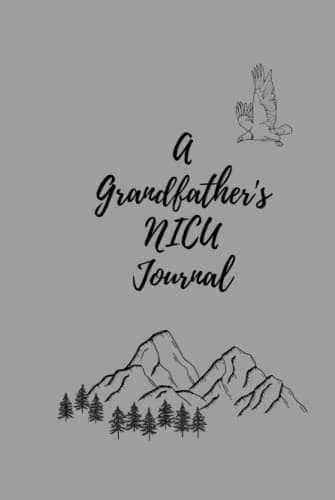I know from personal experience when my first child was born very prematurely how traumatic the journey in the NICU can be. But when a baby is born prematurely and requires a stay in a Neonatal Intensive Care Unit, the ripple effect extends out much further than just the parents and the baby.
While there are countless books worth reading about a NICU baby’s journey, there isn’t a lot written from the perspective of a grandparent and the unique journey they have to go through.
We caught up with an author whose first grandbaby was in the NICU for over 100 days in a city and state miles away from the baby’s home. Six years after her experience, she wrote a book to honor her grandchild’s life.
The title of the book is Bringing Lissy Home: Trials and Triumphs of a Micro Preemie Through the Heart of a First-time Grandmother.
If you know a family who is dealing with a prolonged NICU stay, we highly recommend gifting this book to the grandparents or any other family members and caregivers involved. They will find comfort and courage from reading another grandparent’s experience, as well as valuable lessons to help them manage this traumatic event.
Q: We Understand The Experience Of Your First Grandchild In The Nicu Inspired You To Write Your Book. Could You Say A Little Bit About That Experience From Your Perspective?
[Helena Adams-Kelley]: I don’t know if I have ever felt so helpless in my life. Our granddaughter was born just shy of 27 weeks gestation and over 2200 miles from their home while visiting family for Christmas. Everything rose to the level of crisis – away from home, away from their own obstetrician, away from his job, away from the majority of their family and close friends, away from all the plans that had been started to welcome the baby home. It was crisis on top of crisis on top of crisis, and every single piece of it felt like an emergency.
Our adult children were the ones who needed the highest level of support, and that was my number one goal. I also knew our little granddaughter was getting everything she could possibly need to survive. I needed to find other avenues to handle my own set of worries and fears.
Q: How Did You Accomplish This Goal?
[Helena Adams-Kelley]: Writing was a therapeutic outlet for me. I was able to process my emotions and questions, while keeping my focus on the moment in front of me. The daily NICU ups and downs prevent you from looking too far into the future. I wanted to rejoice in our first grandbaby but didn’t quite know what was “appropriate” given the delicate balance between life and death.
I journaled in the form of emails to our closest family and friends who I knew would be a source of community and support for me on this journey. It helped me to recognize the smallest victories despite the high level of fear and anxiety. I have taken those emails and created this book with the hopes of offering seeds of encouragement to other grandparents or other caretakers.
It is now over 6 years down the road from this experience, but it feels like it was just yesterday. It took years for my fears to settle enough to not worry about our granddaughter’s life. Part of that could have been PTSD, but most of all, it is because the fear doesn’t end when the baby arrives home. The ways she needed to be fed, held, touched, among so many other medical
things were different from a full-term baby. I was so in awe of how our adult children handled everything.
During this transition, I learned so much about myself.
Today, I can say that our granddaughter, alongside our family, is thriving, and I am so incredibly thankful.
Q: Why Did You Choose To Use A Pen Name To Write Under?
[Helena Adams-Kelley]: All of the names have been changed for privacy reasons. My pen name is Helena Adams-Kelley. Helena is part of my extended name, Adams-Kelley is a combination of both my husband’s mother’s and my mother’s names. It is in honor of Lissy’s two great-grandmothers since both of them had passed away before we welcomed her into our family. I know they’d have loved her.
Q: How Did You Choose The Title Of Your Book?
[Helena Adams-Kelley]: It is one of the chapter titles. It has a deeper meaning than just bringing our granddaughter home from the NICU. Because she was born in Washington State which is over 2200 miles from their home in Texas, bringing her home was a huge ordeal. So many things had to be arranged and considered for her safety.
Excerpt from book: (Chapter 11 is titled “Bringing Lissy Home”)
“It came as a wonderful surprise when we received the text from Luke & Michelle that they were being released from the hospital yesterday. I have not really spoken verbally with them so my understanding about how quickly this came about is only that she did well enough with the 24-48 hour feeding trial and the car seat test. They are at Dawn & Christopher’s house to be sure she is stable and they have the follow-up with the pediatrician on Friday.
I will travel to Seattle on Sunday. I will fly back to Texas with them on Monday evening on a red-eye flight. We chose the red-eye flight to hopefully reduce the people-exposure both in the airport and on the plane. We have attempted to create a pseudo-quarantined square area by booking 4 seats (2×2) with a wall behind us. Michelle’s dad will take their car to the airport in Texas for them to drive home, and I will head back to our home. They want to be alone as a family for a bit, as well as keeping Lissy as quarantined as possible.
This is all so happy, scary, exciting, nerve-wracking, joyful, stressful … to name a few emotions. It will be a very stressful day traveling home, especially for Michelle and Luke. Then settling in and getting Elizabeth arranged with a medical team in their hometown. As odd as it seems, to have Elizabeth off the monitors is also stressful. Of course, it is what we all want, but those monitors have been telling them minute-by-minute that Elizabeth is breathing, her heart is beating, her oxygen level is good, etc. They will now assume the role not only of primary caregivers, but also nurses and doctors. This will also be an adjustment for Elizabeth, and they will need to learn her cues away from the hospital. They have spent 3.5 months in the NICU and became adjusted to that daily routine with Elizabeth. This new routine is the one they have dreamed about … and it is about to happen!”
Chapter 11 “Bringing Lissy Home”
Q: Being Introduced To Grandparenting With Your First Grandchild In The Nicu Must Have Been Very Frightening. Did You Have Any Experience With Neonatal Intensive Care Units Before Your Granddaughter’s Birth?
[Helena Adams-Kelley]: My husband is a physician so I am somewhat familiar with how stressful a hospital can be but I had not had a personal experience with a NICU setting. I do remember one of my nieces being born extremely premature over 45 years ago. I was young at that time and had no idea what my brother and his wife were going through until now.
Seeing all the wires and machines when I first met our granddaughter actually made me feel panicked. Once I learned about the machines, I felt an enormous sense of gratitude for what each one was accomplishing every second of her life.
Excerpt from book (Chapter 6 is titled “Plus one pound!”):
“I would say the biggest obstacle for Elizabeth currently is her respiratory needs. They are still trying to find her sweet spot for her lungs and the pneumonia complicated things. It is a difficult up-and-down day-to-day feat for Elizabeth to breathe correctly with all parameters firing together. Her neurological synapses are not fully developed enough to tell her to breathe regularly and her lungs are still developing all the minute pieces they need to work properly. Elizabeth is no longer intubated from the pneumonia but requires assistance in breathing. She is on a NAVA (Neurally Adjusted Ventilator Assistance) which automatically adjusts oxygen in proportion to her own efforts. She has a nasal cannula, and you can hear this machine quite well as she is breathing. While it is a constant reminder of her frail lungs, I am so grateful for this technology to better match her needs. It does not eliminate the struggles she is having but it helps them to monitor her better.
Luke & Michelle have learned to read when Elizabeth is turning blue or grayish in color and know what to do at those times. Lissy is reminding me to never take one breath for granted. We are mightily hoping she will not require intubation again. There were several scary moments last week – one where she had to be bagged (artificial manual breathing) and one time when the nurse rushed in and, albeit gently, whisked Elizabeth up and turned her in all directions to get her to take a breath. Both of these events happened during the nighttime, so I did not physically witness them. I think I would have been a puddle on the floor if I had been there.”
Chapter 6 “Plus one pound!”
Q: If You Could Give A Few Nuggets Of Wisdom That You Learned To Other Nicu Grandparents, What Would It Be?
[Helena Adams-Kelley]: Being a NICU grandmother is a tremendous balancing act. You are both mother to adult children with high levels of stress AND a grandmother to a very fragile baby.
Be flexible in order to be most helpful. Offer kind words of support, encouragement, and prayer to the parents of the baby. Find avenues of support for your own emotional roller coaster from your spouse or significant other, friends, and family. Your kids need you the most right now, so you have to be there for them regardless of how you feel.
To further help you in a practical way, I published a companion journal to my book entitled, Bringing Lissy Home Companion Journal. The journal has the prompts from the end of each chapter of my book. Each prompt is intended to help you focus on the tiniest forward steps that are happening all around your grandbaby and move your attention away from the fear and anxiety-inducing things. There are suggestions about things you can practically do that may help your adult children manage the new challenges in their life.









